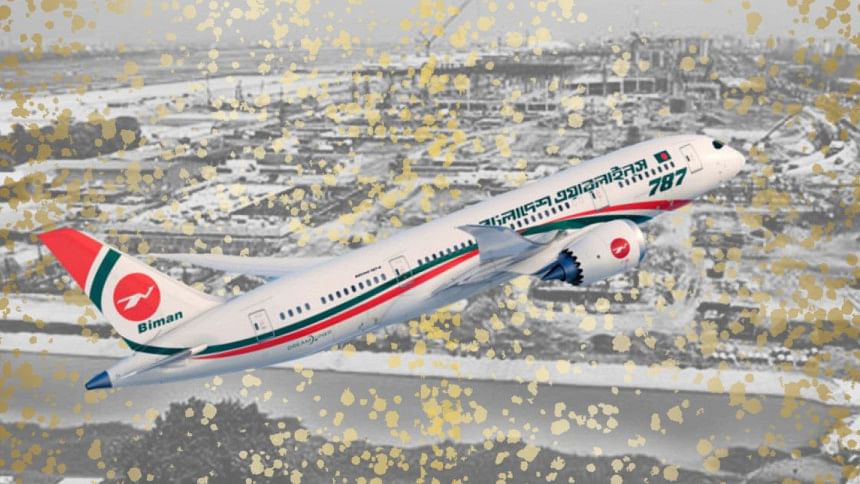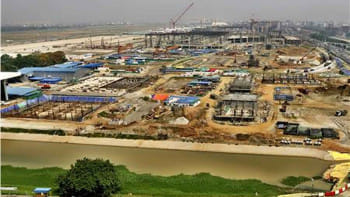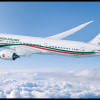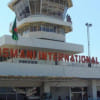To make Bangladesh an aviation hub, we must invest in our airlines

Bangladesh government wants the country - especially Dhaka - to become an aviation hub in the region and compete with other regional hubs such as Singapore, Bangkok, and Delhi. A few weeks ago, Prime Minister Sheikh Hasina called for a 'roadmap' that would help illustrate how the country's main international gateway Hazrat Shahjalal International Airport (HSIA) can be transformed into a key aviation hub, largely owing to the construction of the ambitious third terminal. However, airports are just one half of the game for a thriving aviation sector. A well-established airline industry is the other half. This is because without airlines and their aircraft, an airport would basically be an empty shell.
This is exactly what we see in the case of other global hubs. Those airports have today established themselves as aviation hubs, thanks to their airlines. Dubai International Airport has Emirates, Doha's Hamad International Airport has Qatar Airways, and similarly Singapore's Changi has Singapore Airlines. All these are some of the best airlines in the world that connects passengers to different parts of the world via their hubs.
Although HSIA would not be as large an aviation hub as Dubai or Doha, it does have the potential to be an important Asian hub. And for that, Biman Bangladesh Airlines has a very important role to play. For many years the national flag carrier had a negative reputation but now, after the addition of newer aircraft from Boeing in its small fleet, Biman is doing better than before. However, it is nowhere near enough. And many Bangladeshis still don't trust Biman and/or are not happy with their service. The airline still has less than 15 turbofan-powered aircraft. For a country of over 165 million people, the 35th largest economy, and over 13 million of its population living around the world, the national airline fleet is rather miniscule.
It has been more than a decade since 10 new aircraft were ordered from Boeing. It seems that Biman's top management either thought that these would be enough, or they perhaps forgot that the airline needs to keep adding new aircraft to significantly grow and expand its operations. Unfortunately, Biman hasn't been able to add much to its international route network since acquiring the new aircraft and many routes that the airline once served in the past remain canceled. Of course, when incompetency and mismanagement are Biman's main game, such sorry state of the national airline is to be expected. Even the more economically poor African nation of Ethiopia has an internationally recognised airline with a young, modern fleet. When will the top brass in Biman learn how to properly run an airline?
Biman has a lot of potential. Many years have been wasted, but it is never too late. The time to turn things around is right now. Biman Bangladesh Airlines needs to undergo a major transformation in order to grow and expand significantly. Word on the street is that Biman has been in talks with Airbus to purchase new aircraft, but the same people are using the excuse of economic slowdown to not order anything yet. Do these people have any idea that it will take years before the first deliveries can be received?
Unlike Biman, aircraft manufacturers wait for no one. The earlier an airline places an order, the earlier they can get delivery.
The national airline requires at least 18 to 24 new aircraft in the short term in order to make significant changes. A suggestion would be to acquire A320/A321neo aircraft for short-haul and regional routes and A350s for medium-long haul routes. These new airplanes would allow Biman to significantly expand its international network, including resuming previous destinations in Europe and Asia; launching a direct flight to New York and Sydney as well as flying to Toronto without any stops. But purchasing new aircraft won't do much if the image and service of the airline remains the same. Nowadays the cabin and passenger experience have become an essential part of the whole flying experience. Airlines around the world introduce new products and passenger amenities when new aircraft orders are received. Therefore, Biman also has to upgrade its business and economy class cabins and introduce a world-class inflight infotainment system.
Soft touches must not be forgotten as well. From updating the website and online booking system to modernising the cabin crew uniforms, Biman certainly has a lot to consider and improve. And while Biman's in-flight catering generally receives good feedback from passengers, it could do more with more menu options and a wide variety of cuisine. Generally speaking, our national airline should not market and cater to Bangladeshis only, but also try to attract passengers (as well as cabin crews, pilots, and staff) from other countries and for that to happen, the carrier's passenger experience and inflight service needs significant improvements.
With the opening of the 3rd terminal, Biman Bangladesh Airlines needs to restructure itself completely and take initiatives to focus on the growth and expansion of the airline in terms of fleet, route network, hard and soft products on board, and world class training of its staff and crew members. Then it would certainly pave the way towards a growing aviation hub in Bangladesh.
Manazir Islam is an urban planner, traveller and photographer.


 For all latest news, follow The Daily Star's Google News channel.
For all latest news, follow The Daily Star's Google News channel. 









Comments